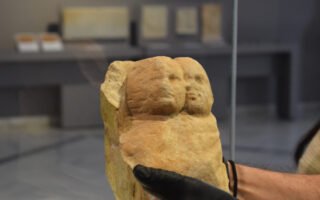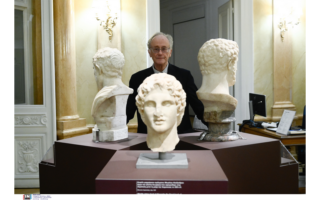Exploring women’s roles in their microcosms
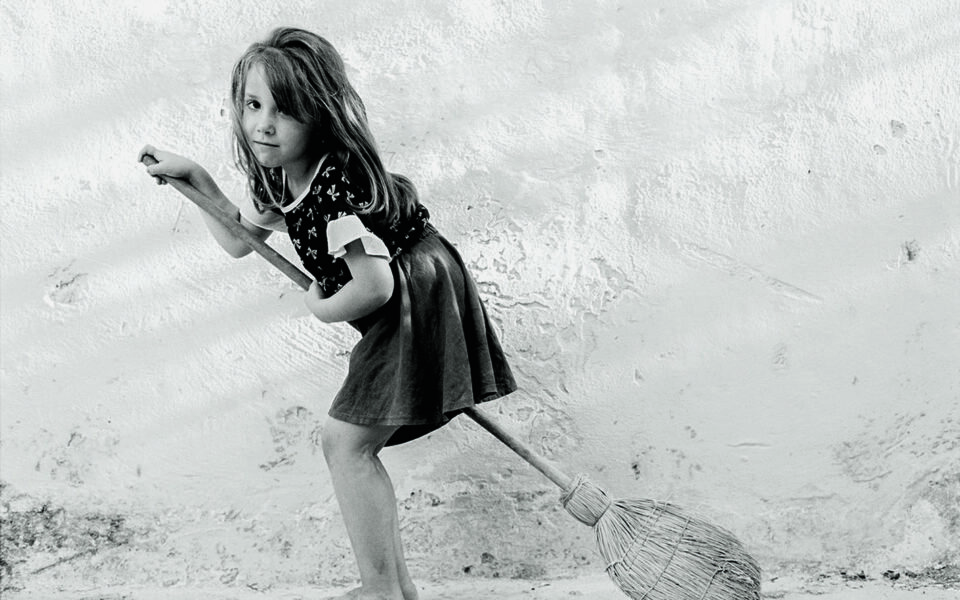
Pepi Loulakaki met Bahar years ago, when she was just 12 years old and selling flowers in downtown Athens’ Plaka district. Bahar would often pop into the older photographer’s home to rest her weary feet from walking around the streets selling gardenias to romancing couples. They gradually became friends and started to learn each other’s language. “I told her not to drop out of school, but I could see that her mind was on love and boys. I photographed her because she had a special beauty and she liked to philosophize on life and learn new things,” Loulakaki recalls.
Their paths separated and crossed again 15 years later in the village of Drosero in Xanthi, northern Greece, where the photographer was working on a project about Thrace and its ethnic minorities. Bahar was married and had two school-aged kids. “Her hospitality was among the warmest I have ever received; the family even threw a party for me,” says Loulakaki.
Bahar is one of the many protagonists of Loulakaki’s ongoing open-air photography exhibition, “Portraits of Women,” on display in the park of the Stavros Niarchos Foundation Cultural Center in Faliro, southern Athens, through June 30. The show comprises 48 portraits of women from rural parts of Greece and/or underprivileged social environments.
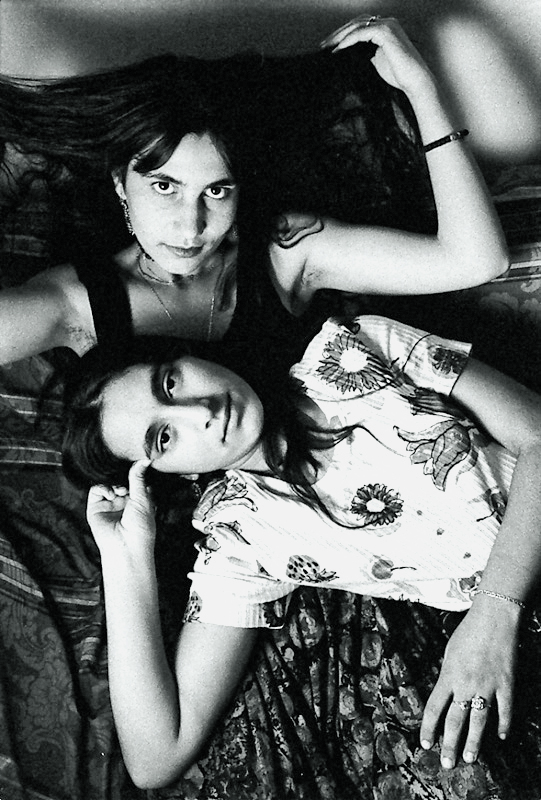
Apart from the subjects themselves and the sincere way in which they are captured, the exhibition also points to the different ways women are regarded by other women, as opposed to men – for the world’s great male artists, women have been wives, lovers, maidens and muses.
Photographer Pepi Loulakaki’s exhibition ‘Portraits of Women’ is on display at the Stavros Niarchos Foundation Cultural Center in Faliro, southern Athens, through June 30
“I think the male gaze tends to focus on a woman’s femininity first. And maybe this is inevitable,” says Loulakaki. “With me, though, the women let themselves go, they were themselves. For example, they put on makeup not to please someone else, but for fun, an experiment. The fact that I was a woman opened the doors to their homes and private quarters, to their lives, and this is often hard.”
Loulakaki notes that many of the women she photographed lived in male-dominated or very conservative communities. “I remember one Muslim woman in a village in Rodopi laying out her prayer rug on the balcony and complaining, as I photographed her, about the fact that women were not allowed into the mosque,” she says.
The photographs in the exhibition were taken between 1992 and 2020. She has always loved portraiture, ever since her father gave her her first camera when she was in her teens. She started taking pictures of her family and the house, then moved on to taking the camera to school and photographing her friends and classmates. The theme of women came later. “The treatment of the model has always been an exploratory study of the position of women in society and in the microcosm where each one lived,” says Loulakaki.
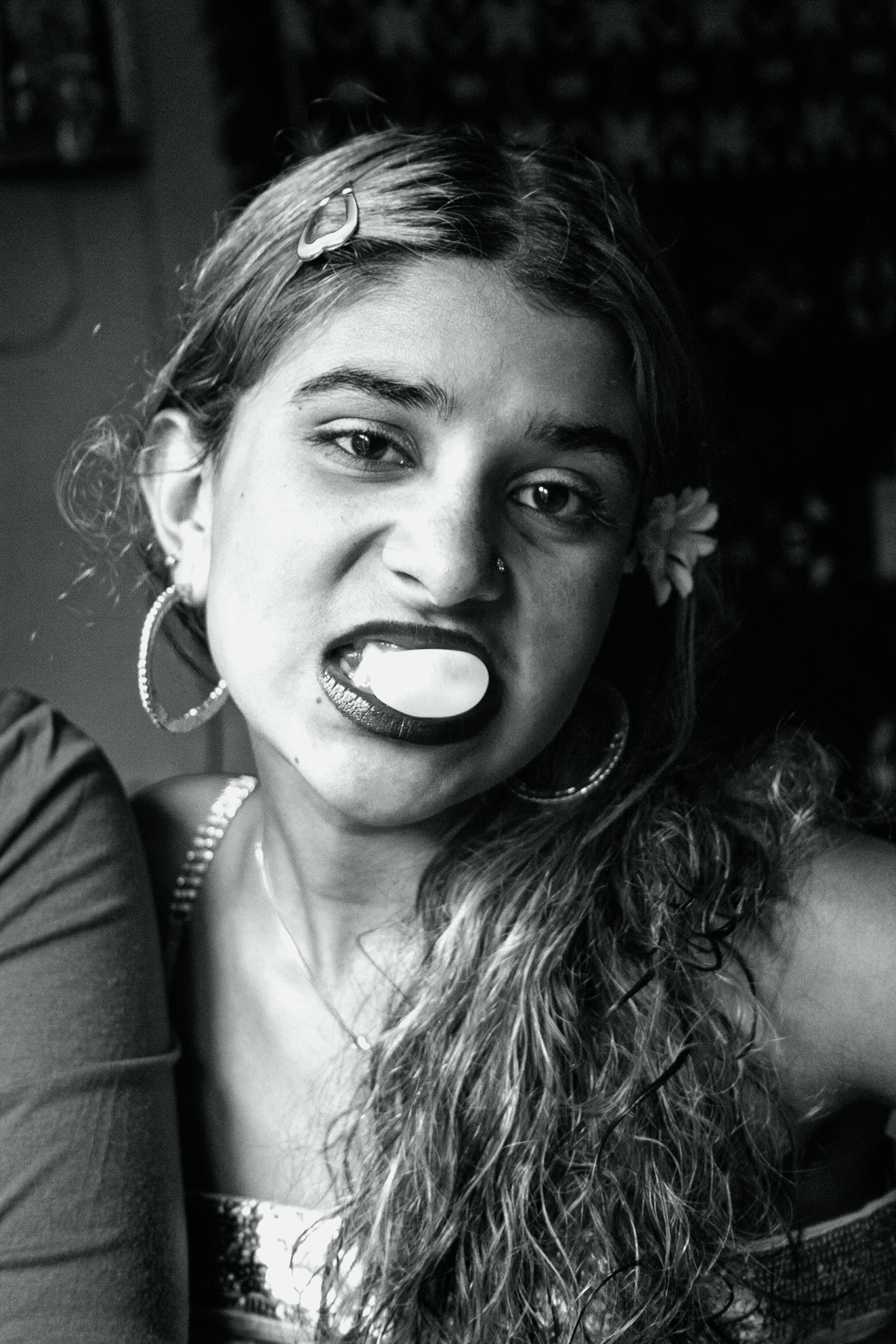
When and how does she decide to raise her camera? “I try to capture how each feels in her own environment. Does she play without inhibition, allow her imagination to wander? Does she allow herself to express herself or is something holding her back? To what extent does she feel like a woman and to what a child? What is her position in the home, among the family’s other women and men? How does she flirt? Does she feel confident inside her own body, and how does she achieve this if she’s living in an unprivileged environment?”
For Loulakaki, it is not just about the individual women, either; she work goes deeper than that, which is why the exhibition was organized as part of the SNFCC’s WOW (Women of the World) festival, which the organization is hosting for the second year in a row (April 6-8).
“I have always been interested in a woman’s place in society. Because if she is accepted, she is healthy and she can raise resilient and aware children. I believe that this is what our society’s maturity and resilience depends on,” says Loulakaki.
To find out more about the interesting program of events making up the WOW festival, log on to snfcc.org.




